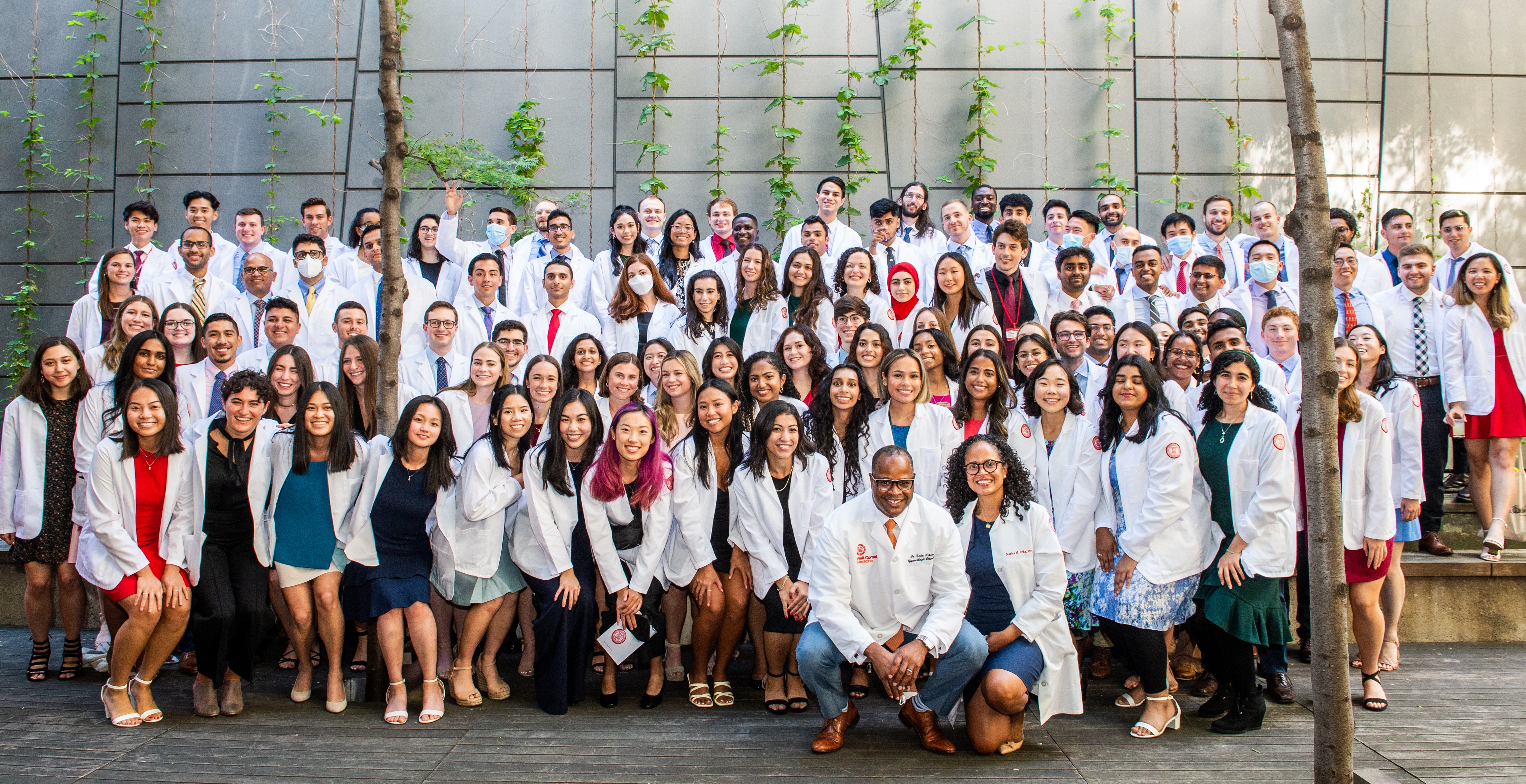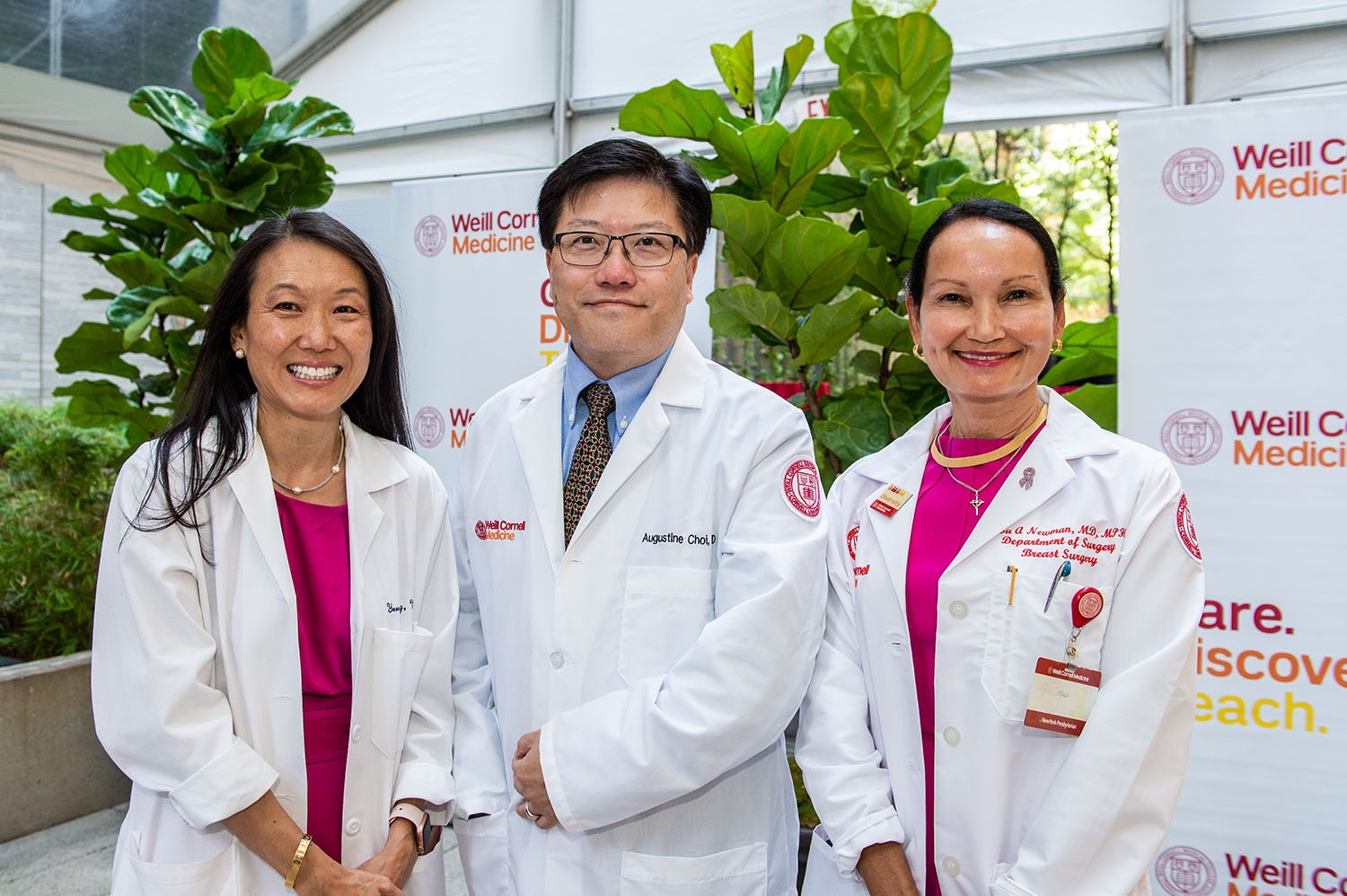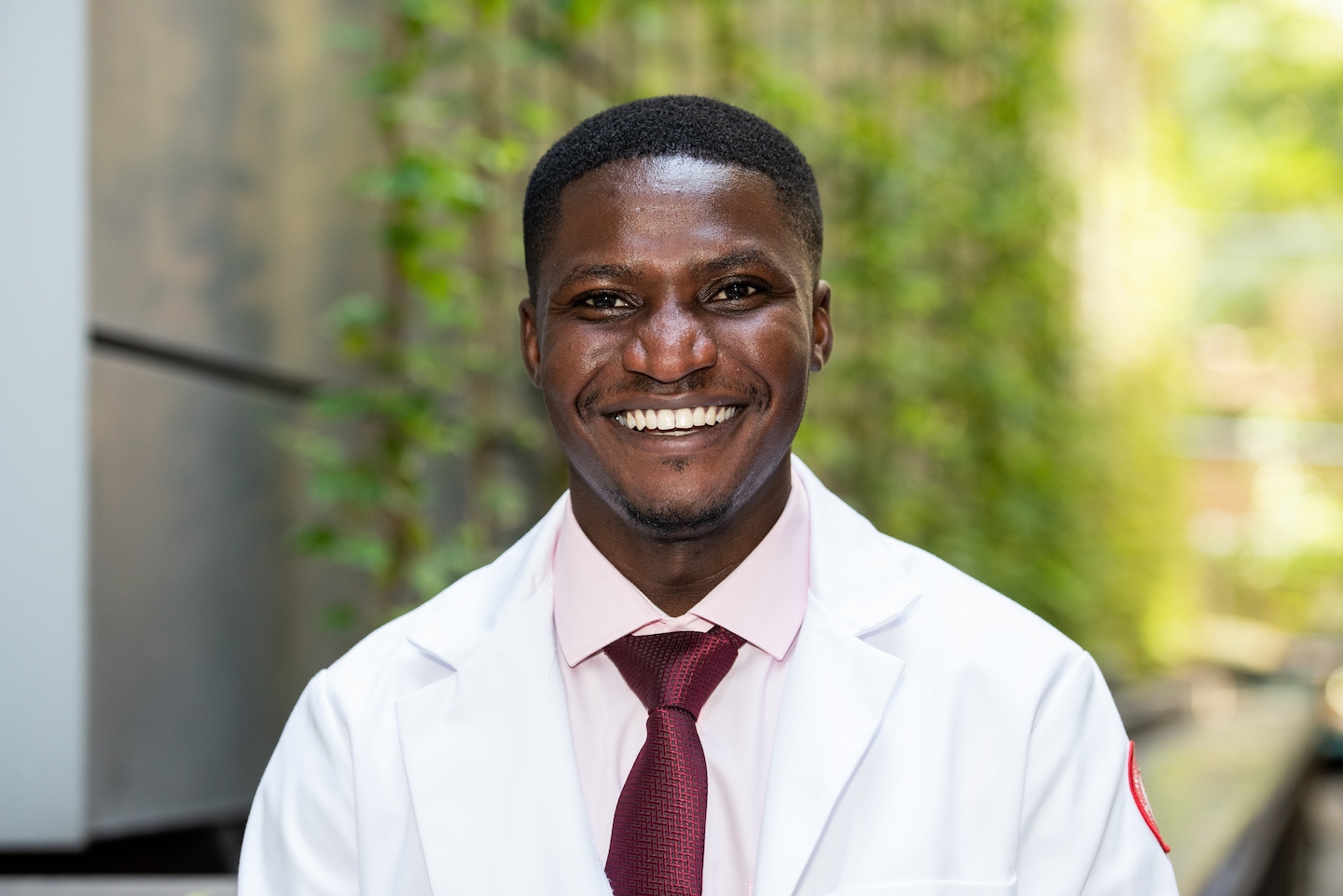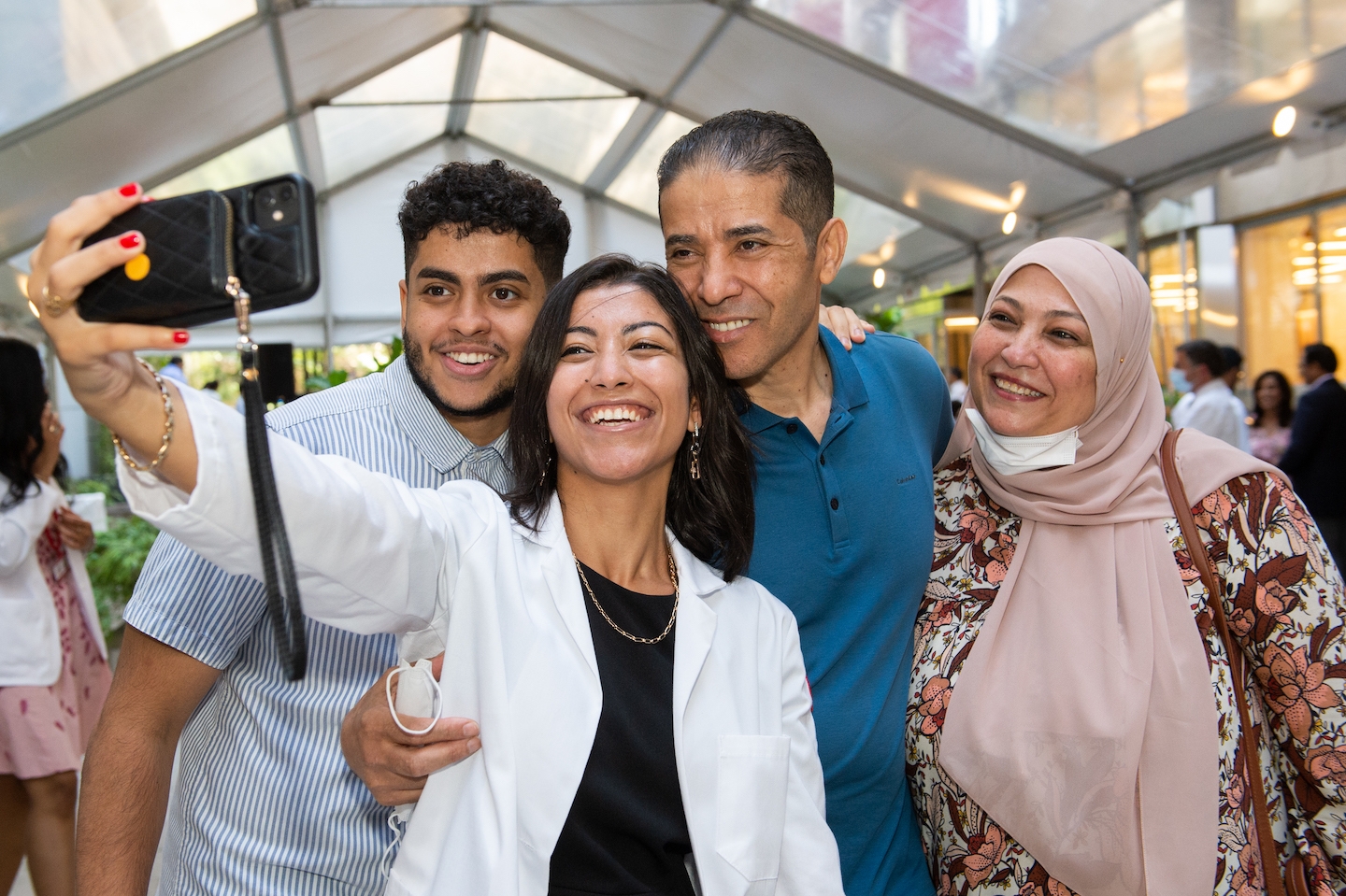WATCH the full Class of 2026 White Coat Ceremony on YouTube
Rana Barghout didn’t realize the power of her story until she shared it. It had been five years since she experienced homelessness, living in a car for months with her two younger siblings after a tragic house fire left her parents in the hospital. Her family was able to eventually find a place, until her father, who worked in construction, could fix up their original home. But for years she felt ashamed of this part of her past, keeping it a secret. Then, as a senior at Amherst College, where she was studying neuroscience, she was selected to give a TED Talk about her experience. It changed her perspective.
“It showed me the power of my own voice and how much my story could resonate with people and encourage them as they faced their own difficult situations,” said Barghout, 23, now a first-year medical student at Weill Cornell Medical College. “To this day, I consider it my biggest accomplishment and something I’m very proud of.”
She’s committed to using that voice in her pursuit of medicine—to advocate for patients and address the health disparities experienced by underrepresented communities, something she witnessed and faced herself both in her native Egypt, where her family lived in a poor village, and in Jersey City, N.J., where she largely grew up.
“I want to feel like I’m making a difference,” said Barghout. “I hope to work with underserved communities and increase awareness of the uneven access to care, and give back by helping others who have struggled like me. With everything I’ve experienced, I feel very impassioned to tackle these inequities and advocate for meaningful changes.”
On Aug. 16, Barghout and 105 of her classmates in the Class of 2026 received their short white coats during Weill Cornell Medicine’s annual White Coat Ceremony. Soon, they will also receive their stethoscopes, supported by the Moss Family Foundation and the Paul F. Miskovitz, M.D. ’75 Stethoscope Fund for Medical Students, and alumni who have generously supported the fund, including Dr. John Wang, Class of ’79.
The incoming class received their coats from faculty members at an outdoor ceremony on The Starr Foundation-Maurice R. Greenberg Conference Center Terrace of the Belfer Research Building, while their families and friends watched on a livestream. The event officially marked the beginning of their medical education.

The Class of 2026 at Weill Cornell Medicine’s annual White Coat Ceremony on Aug. 16, 2022.
“When you put on your white coats, you’re joining a rich tradition of excellence at Weill Cornell Medicine that stretches back to 1898, when the school was founded,” said Dr. Augustine M.K. Choi, the Stephen and Suzanne Weiss Dean of Weill Cornell Medicine. “As a class, you’ve already shown that you have the DNA to fit with our ethos and culture, and that you have the integrity, initiative, curiosity and resilience to succeed.”
Those qualities are especially critical amid the COVID-19 pandemic, as these new physicians will face both challenges and opportunities in their practice and research, said Dr. Yoon Kang, senior associate dean for education and the Richard P. Cohen M.D., Associate Professor of Medical Education.
“You are entering medical school at a time when physicians are needed the most,” she said. “Although the white coat is the uniform of our profession, there will not be uniformity in what you each do. As a physician you will have the power and the opportunity to positively impact patients’ lives.”
The Class of 2026 adds to Weill Cornell Medicine’s diverse community. Its students hail from 18 different countries and half the class is bilingual or multilingual. Women comprise 52 percent of the class, 28 percent are from groups underrepresented in medicine and 23 percent are first-generation college students. Collectively, the incoming class attended 50 different undergraduate colleges, across 23 states, with 12 alumni of Cornell University.

From left: Drs. Yoon Kang, Augustine M.K. Choi and Lisa Newman
That diversity is essential to building a stronger medical workforce, keynote speaker Dr. Lisa Newman said, one that is reflective of the community it serves and is dedicated to achieving health equity for all patients.
“All of you represent the ability of our medical workforce to do better, and to eliminate the disparities that weaken our entire society,” said Dr. Newman, who is chief of the Section of Breast Surgery at Weill Cornell Medicine and NewYork-Presbyterian/Weill Cornell Medical Center. “I know that Weill Cornell Medicine chose well in the selection of its Class of 2026. With your talent and brilliance coupled with a Weill Cornell Medicine education, I can’t wait to see what you will achieve.”
Kingsley Osei-Karikari, 26, of the Bronx, credits his mother for kindling a passion for medicine and education. Osei-Karikari grew up in a small town in Ghana, two hours away from the nearest physician. His mother, who didn’t complete high school, saw the unmet need in her community and left when he was a toddler to train under a pharmacist. She returned a few years later as the “town nurse,” providing care to people who otherwise would not have access, even admitting patients to their home.
“Growing up in that household, I saw how much she endured to care for these people, and she did the best she could, even without the educational or medical background,” he said.

First-year medical student Kingsley Osei-Karikari.
Wanting him to have the best opportunities to learn, his mother took all the money she had and sent him to one of the top schools in their region. During a lecture he learned that Ghana had just two neurosurgeons to serve the entire country. He was resolved to become the third.
Soon after, Osei-Karikari had the opportunity to come to the United States at 15 to continue his studies. He attended Dartmouth College, where he majored in neuroscience.
On Tuesday Osei-Karikari earned his white coat as a first-year medical student at Weill Cornell Medicine. He video-called his mom in Ghana, so that she could see him wearing it.
“She couldn’t imagine that one generation away, her son would not only complete high school, but also go to college and then medical school,” he said. “To be able to take that passion she has instilled in me and get that white coat and the education that comes with it, it’s something that is very humbling and fulfilling.”

